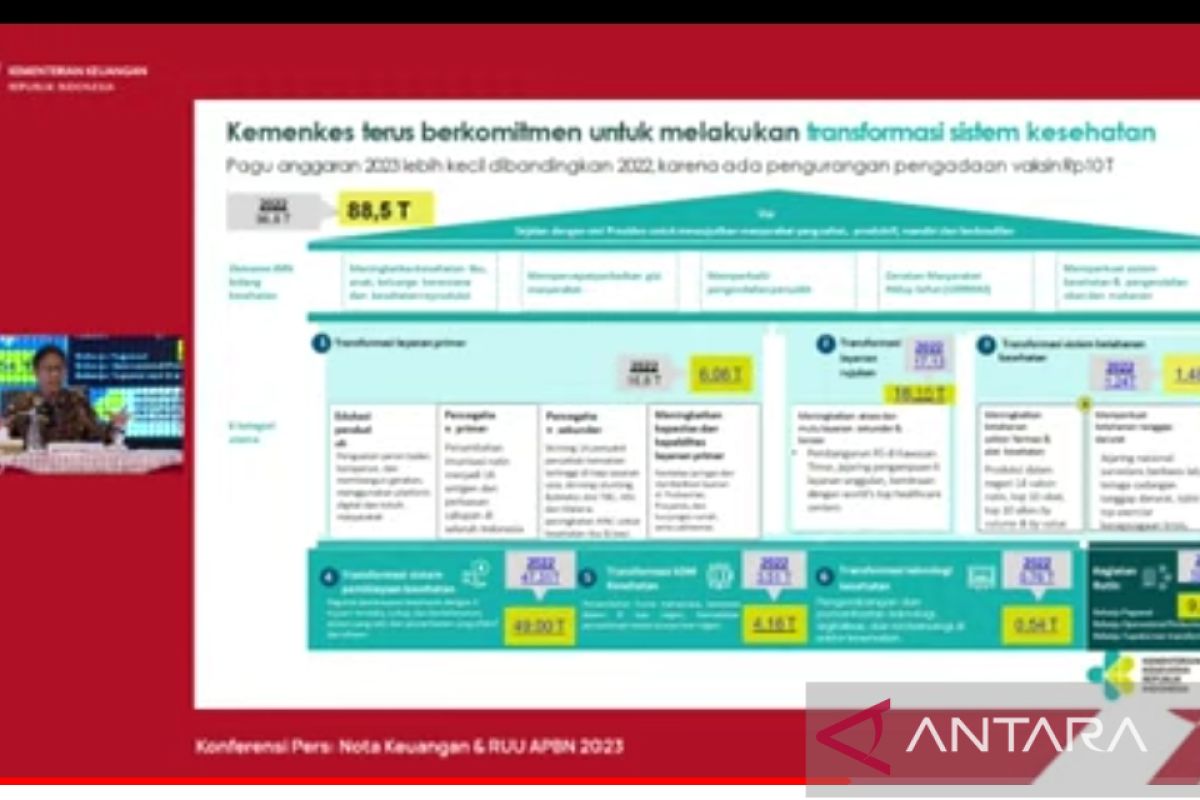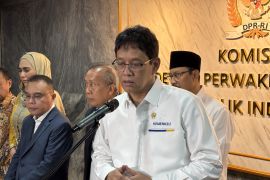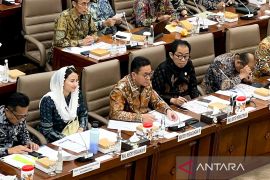"We have prepared a health transformation because when there is a crisis, it is the best time to make a transformation," Health Minister Budi Gunadi Sadikin said at a press conference on the 2023 draft state budget and financial notes, which was followed via the Ministry of Finance's YouTube channel from here on Tuesday.
The first transformation is the revitalization of 300 thousand integrated health services posts (posyandu) and community health centers (Puskesmas), including increasing service standards and constructing structured public health laboratories in all regions so that during a pandemic, people can stay healthy.
The second pillar is the transformation of referral services by revitalizing all hospitals across the country—around three thousand--so that they are equipped to handle four diseases that contribute the most to mortality, namely heart disease, stroke, cancer, and kidney disease.
The third is the transformation of health services. "We want to ensure that the health industry is ready when another pandemic occurs. This includes preparing health reserve personnel at the medical faculty, health polytechnic, Scouts, and other organizations," the minister informed.
The fourth transformation is health financing for the procurement of medical devices, medicines, and health screening tools.
The fifth is human resources transformation, which envisages the equal distribution of health workers in all parts of the country.
Related news: RI has 44 globally accredited hospitals to bolster health tourism
Based on the guidelines of the World Health Organization (WHO), Indonesia's doctor-population ratio must meet the standard of 1:1,000.
Thus, with a population of 270 million, Indonesia must have 270 thousand doctors, he said.
Meanwhile, the current number of doctors in Indonesia is only 120 thousand, he added. "We still lack 150 thousand doctors," he noted.
The sixth pillar is technological transformation. As part of this pillar, electronic medical records will be implemented so that they can be integrated with all health facilities, he explained.
The minister said the government had decided to increase the allocation of the health budget from Rp113 trillion to Rp300 trillion in 2023.
He described the budget increase as extraordinarily high, although it is still relatively lower compared to other countries.
According to him, the increase in the budget will play an essential role in Indonesia's success in controlling the COVID-19 pandemic.
Related news: Medical technology transformation improves residents' medical care
Related news: Gov't prepares six pillars of health transformation to handle COVID-19
Translator: Andi Firdaus, Raka Adji
Editor: Suharto
Copyright © ANTARA 2022












